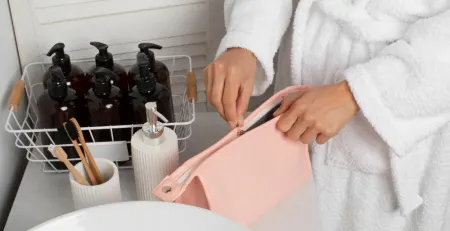How Long Does Unopened Perfume Last: The Shelf Life
- Home
- Blog
- All articles
- How Long Does Unopened Perfume Last: The Shelf Life
How Long Does Unopened Perfume Last: The Shelf Life
Preserving the Essence – the Comprehension of the Durability of Perfumes
In the captivating realm of perfume, its enduring quality is a crucial factor for both aficionados and collectors. At MC Grand Shop, we emphasize recognizing and maintaining your perfume’s true character. Let’s explore the factors that impact a perfume’s enduring quality and how to ensure your favorite aromas stay as rich and fragrant as possible for the longest time.
Essentials of Perfume Durability
The durability of a scent is a critical consideration in the world of perfume. Typically, a bottle of premium scent, when unopened, can retain its quality for approximately three to five years. The lasting power of a scent is largely dependent on its chemical makeup and the caliber of its components. Scents crafted from natural essences, like essential oils and extracts, usually have a shorter duration compared to their synthetic counterparts.
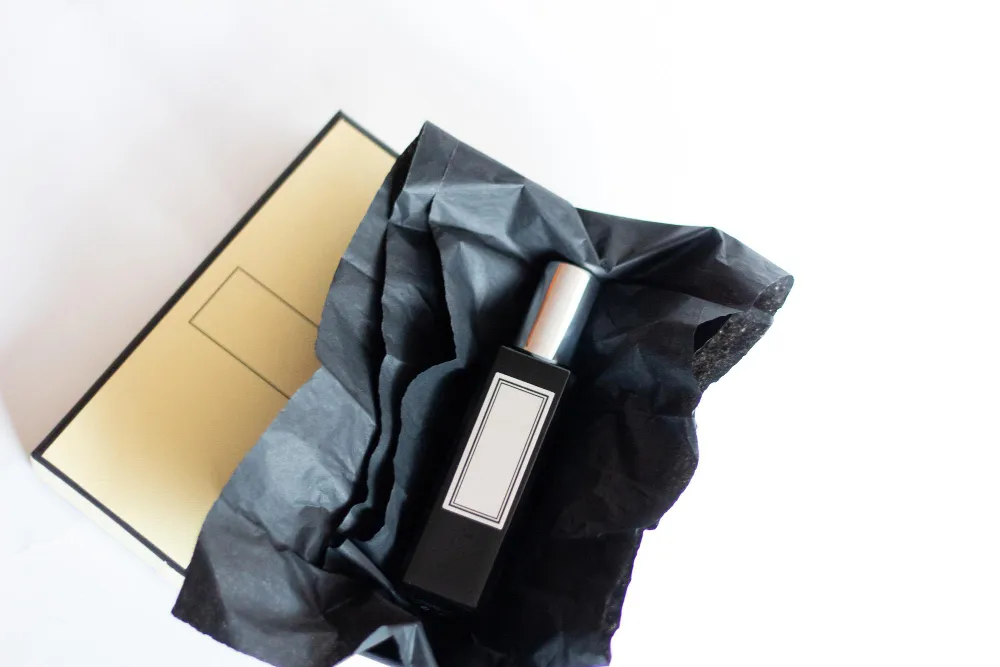
The proportion of scent elements is pivotal; for instance, Eau de Parfums, known for their higher concentration of essence, tend to endure longer than Eau de Toilettes. Factors such as light exposure, temperature variations, and air can also affect a perfume’s lifespan. Storing your scent correctly, shielding it from sunlight, and keeping it in a cool setting can markedly prolong its life. However, over time, a perfume might show changes in both its hue and olfactory signature, signaling that its optimal period of use is concluding.
How Airtight Sealing Safeguards Aroma
Ensuring a perfume bottle is airtight is integral in preserving its aroma over time. A well-sealed bottle reduces air contact, a major contributor to scent degradation. The presence of air can lead to the infusion of oxygen and other gases into the perfume, resulting in oxidation that can modify the original scent. An airtight seal also hinders the escape of the perfume’s more fleeting components, thus maintaining the aroma’s concentration and fidelity to its initial composition.
What is the Aging Process of Perfumes?
The maturation process of scents is an intriguing path that each fragrance embarks on from its inception. As time passes, the nature and blend of perfume can transform, echoing the aging process of esteemed wines. This evolution within the scent bottle is the result of various chemical alterations.
Chemical Transformations Over Time
Scents are intricate concoctions of diverse organic elements, and their interaction over prolonged periods can modify the scent’s profile. With aging, a scent’s chemical balance is affected by aspects like the instability of ingredients, air exposure, and the interplay among different components. Typically, the most unstable top notes vanish first, frequently altering the initial aroma of the scent. As time progresses, the more enduring heart and base notes become more dominant, potentially shifting the whole aromatic character.
In certain instances, specific components may interact with one another or with the alcohol in the scent, giving rise to new olfactory compounds. These interactions can enhance the scent, contributing greater depth and layers. However, not every chemical change is advantageous. Some transformations might degrade the fragrance, leading to undesirable notes or a decrease in the aroma’s intensity.
External Elements – Temperature and Illumination
The surroundings where a scent is carefully stored can significantly impact its persistence. Exposure to elevated temperatures and direct light can expedite the deterioration process, ultimately transforming the character of the fragrance.
How do you maximize the life of your perfume?
Ensuring the longevity of your perfume involves more than just careful use; it’s about adopting strategies that preserve its quality over time. Here are some detailed insights into how you can maximize the life of your cherished scents.
Best Storage Practices for Perfume Longevity
- Keep Away from Light and Heat:
Perfumes are sensitive to light and heat, which can accelerate the degradation of their aromatic compounds. Store your bottles in a cool, dark place away from direct sunlight, such as inside a cabinet or a drawer.
- Avoid Humidity:
Bathrooms, which are often wet, could be better for keeping perfumes. Wetness can affect the chemical structure of the fragrance, resulting in a different scent.
- Maintain Constant Temperature:
Temperature variations can also affect the consistency of the perfume. Try to always store your fragrances in an environment with a constant, moderate temperature.
- Original Packaging is Key:
If possible, retain the original packaging of your perfumes. These boxes are designed to protect the bottles from light and other external factors.
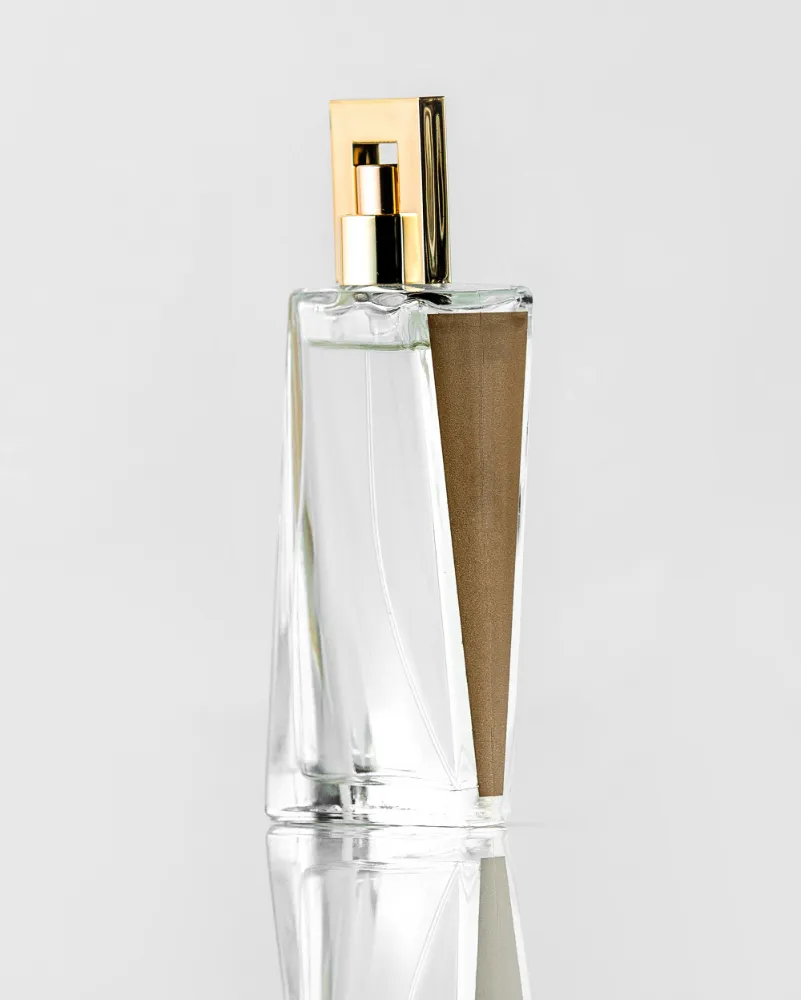
The Myth vs. Reality of Perfume ‘Maturation’
The idea of ‘maturation’ in scents is often shrouded in myths and misunderstandings. While it’s accurate that some scents may evolve to exhibit more intricate or richer fragrances over time, this isn’t a consistent phenomenon. Contrary to wines, which are often anticipated to mature positively in the bottle, scents are typically crafted for use within a specific period post-production.
The belief that all scents improve with age is largely a misconception. In truth, the maturation process of scents is variable and quite unpredictable, differing greatly among different fragrances. Elements such as the scent’s formula, the caliber of its components, and storage conditions are pivotal in how a fragrance matures.
In rare cases, a scent might indeed develop a more favorable character as it ages, particularly if it is composed of high-quality, natural elements that blend and evolve beneficially. Nevertheless, for the majority of mass-produced scents, particularly those with delicate top notes, aging might result in a gradual lessening of their attractive attributes.
Factors That Affect Sealed Perfume’s Shelf Life
Numerous factors exert influence over the duration of a securely sealed scent. These encompass the chemical constitution of the aroma, the density of fragrant components, and the caliber of the utilized constituents.
The Function of Constituents and Strength
The constituents within a scent and their strengths assume a pivotal role in dictating the shelf life of a perfume. Scents with heightened concentrations of essential oils, such as Parfum or Extrait de Parfum, often boast an extended lifespan when contrasted with lighter counterparts like Eau de Toilette.
External Elements – Temperature and Illumination
The surroundings where a scent is carefully stored can significantly impact its persistence. Exposure to elevated temperatures and direct light can expedite the deterioration process, ultimately transforming the character of the fragrance.
How do you maximize the life of your perfume?
Ensuring the longevity of your perfume involves more than just careful use; it’s about adopting strategies that preserve its quality over time. Here are some detailed insights into how you can maximize the life of your cherished scents.
Best Storage Practices for Perfume Longevity
- Keep Away from Light and Heat:
Perfumes are sensitive to light and heat, which can accelerate the degradation of their aromatic compounds. Store your bottles in a cool, dark place away from direct sunlight, such as inside a cabinet or a drawer.
- Avoid Humidity:
Bathrooms, which are often wet, could be better for keeping perfumes. Wetness can affect the chemical structure of the fragrance, resulting in a different scent.
- Maintain Constant Temperature:
Temperature variations can also affect the consistency of the perfume. Try to always store your fragrances in an environment with a constant, moderate temperature.
- Original Packaging is Key:
If possible, retain the original packaging of your perfumes. These boxes are designed to protect the bottles from light and other external factors.
To Open or Not to Open?
Deciding whether to open a perfume bottle can impact its shelf life:
If you’re collecting perfumes or saving a special fragrance for future use, it’s best to keep the bottle sealed. Unopened perfumes, when stored correctly, can last several years without significant changes in their composition.
Once opened, a perfume’s interaction with air begins, gradually leading to evaporation and oxidation. It’s advisable to use an opened bottle within a year or two, depending on the fragrance’s composition and storage conditions.
3 Recommendations for Perfume Utilization: Apply, Alternate, Maintain
Utilize Sparingly but Consistently:
Fragrances are crafted for enjoyment. Employing them on a regular basis can prove more beneficial than leaving them dormant, as prolonged storage, even in optimal conditions, may induce alterations in the aroma.
Rotation of Aromas:
In the event of possessing multiple perfumes, a rotating practice of their utilization can forestall any one of them from deteriorating due to extended storage or exposure.
Bottle Handling:
Exercise caution when manipulating your perfume vessels. Refrain from agitating them, as this can introduce air into the solution and potentially modify the scent.
By adhering to these principles, you can significantly prolong the longevity and excellence of your scents, assuring their preservation in the same aromatic and captivating state as the day of acquisition. It’s important to recognize that a well-maintained perfume serves not only as a personal gem but also as a tribute to the craftsmanship and core of perfumery.
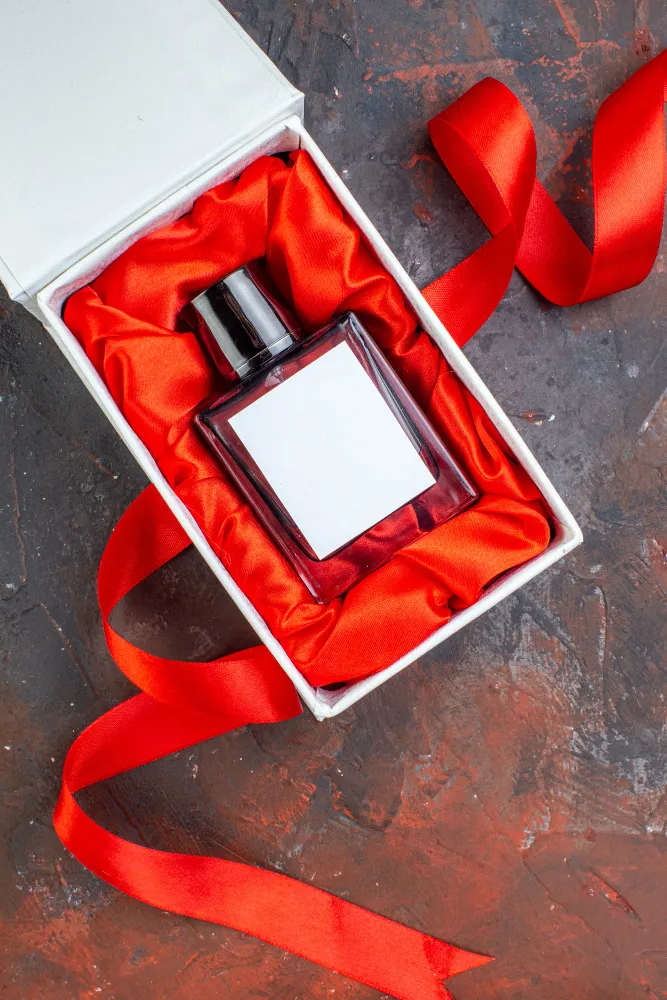
Identifying and Dealing with Spoiled Perfume
Over time, you may notice changes in your fragrance that indicate it has spoiled. Signs include a noticeable change in color, separation of layers, or an off-putting smell.
Signs Your Perfume Has Gone Bad
If your perfume smells sour, overly alcoholic, or just ‘off’, it’s likely that it has gone bad. Changes in color or consistency can also be indicators of a spoiled fragrance.
Safe Disposal of Old Perfumes
When it’s time to dispose of old perfumes, do so responsibly. Avoid pouring them down the drain. Instead, consider donating them if they’re still wearable or disposing of them as per your local regulations for cosmetic products.
Why Take a Look at the MC Grand Shop Durable Choice?
At MC Grand Shop, we present an array of enduring fragrances meticulously fashioned to uphold their charm and excellence throughout time. Our assortment is thoughtfully assembled to encompass scents that not only captivate but also endure the trials of time. Delve into our selection and uncover a fragrance that guarantees both instant gratification and enduring fascination.
In summary, comprehending the elements that impact the duration of unopened perfumes and applying sound preservation techniques can substantially protract the lifespan of your collection of scents. Armed with this knowledge, you can make well-informed choices and relish your preferred aromas for years on end.
Similar Articles
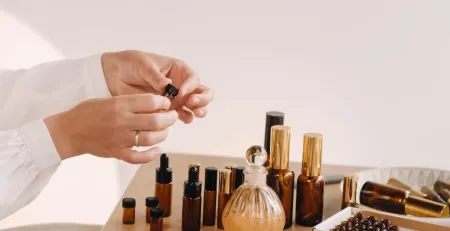
Alchemy of Aromas: The Intricate Process of Perfume Making
What is Behind Perfumes?
Behind every bottle of perfume lies a... read more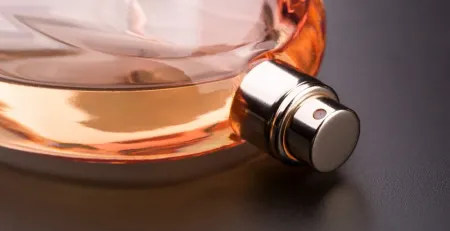
Where to Store Your Perfumes: Tips for Perfect Places
What is the Significance of Proper Perfume Storage?
Effective perfume storage... read more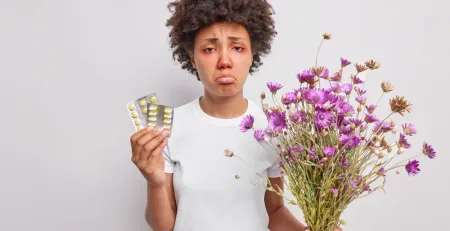
Fragrance Sensitivity: How to Deal with It?
Understanding Fragrance Sensitivity
Fragrance has the unique ability to evoke emotions,... read more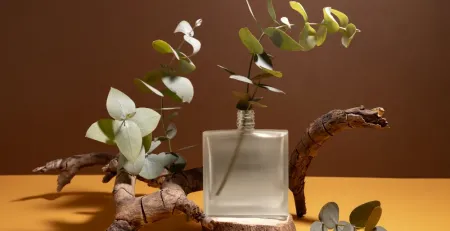
What is Natural Fragrance – Informative Guide
Introduction to the Fundamentals of Natural Perfumery
In the enchanting... read more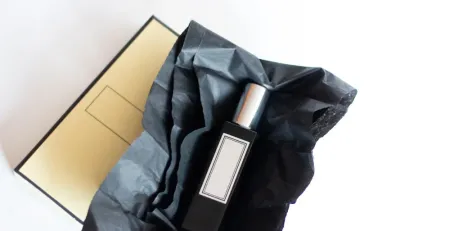
How Long Does Unopened Perfume Last: The Shelf Life
Preserving the Essence – the Comprehension of the Durability of...
read more